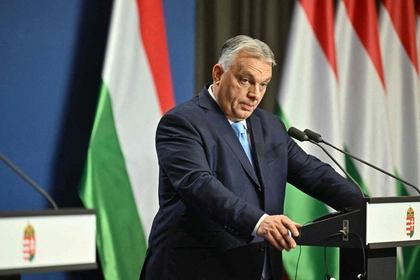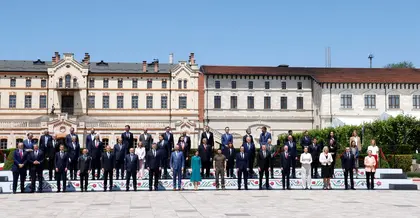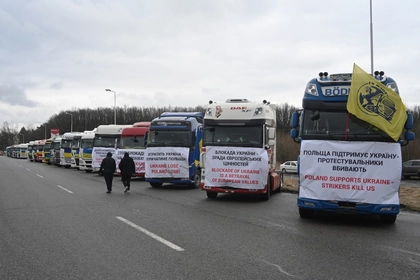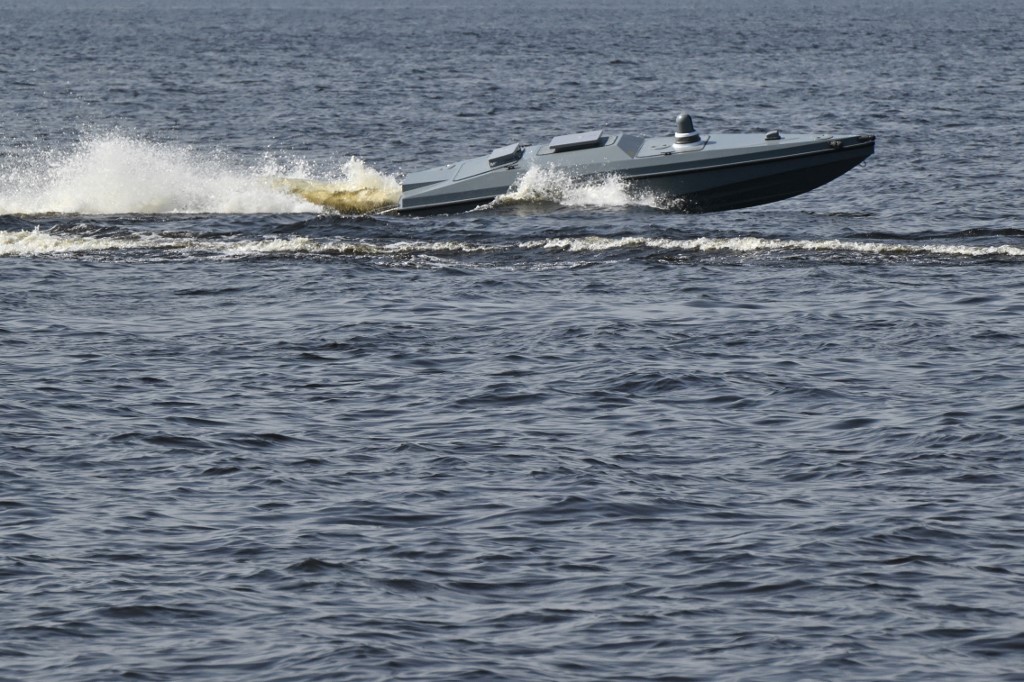European leaders staged a show of unity in the face of Russia's aggression against Ukraine and Moldova on Thursday, June 1, holding a strategy summit on the continent's political frontline.
As another deadly Russian missile barrage hit Kyiv, four dozen leaders from across Europe met in Moldova, just 20 kilometers (12 miles) from the vulnerable country's border with war-torn Ukraine.
JOIN US ON TELEGRAM
Follow our coverage of the war on the @Kyivpost_official.
Ukraine's President Volodymyr Zelensky arrived first, making the short journey to his smaller neighbor while his own capital counted the cost of another night of Russian strikes: three dead, including a child.
President Maia Sandu welcomed the leaders to the second summit of the European Political Community in Bulboaca, hoping to boost Moldova's bid to join the European Union.
"Ukraine keeps Moldova safe today, and we're very, very grateful for that," Sandu told Zelensky, as the pair met on the red carpet outside the Mimi Castle wine estate.
For the other 47 leaders invited to join them, she had another message: "Please do invest in our countries. Please do believe in our democracies, and in our EU future."
Zelensky thanked Sandu and the Moldovan people, and said Ukrainians were happy to stand "shoulder to shoulder" with them as they seek security guarantees from Europe.
Both Kyiv and Chisinau hope to start EU membership talks this year, despite Moscow's ongoing invasion of Ukraine and alleged attempts to undermine Moldova's sovereignty.

Hungary Officially Denied a Billion Euros of EU funds
- 'Security guarantees' -
The EPC summit was also being held less than 10 kilometers from the breakaway Moldovan region of Transnistria, which is occupied by Russian "peacekeepers".
The summit was held under tight security, with NATO's surveillance planes over neighboring Romania extending cover over the tiny former Soviet republic's air space.
The European Political Community (EPC) groups 47 European countries from inside and outside the EU, and excludes Russia and Belarus.
It is a forum for strategic debate and addressing regional crises and -- for some members -- a potential stepping stone to full EU and or NATO membership.
"We must also think of a wider Europe," France's President Emmanuel Macron, who first promoted the idea of forming the EPC, told reporters in Bratislava on the eve of the summit.
"We must think of our Europe not simply from a security point of view within the framework of NATO and not simply within the framework of the European Union."
The Moldova summit also came as NATO ministers, including US Secretary of State Antony Blinken, met to discuss the agenda of the alliance's next summit.
The NATO summit in Vilnius on July 11 will debate how formal a promise to give Kyiv on how and when to join the alliance, but in the interim Europe is keen to show support.
- 'Rocket barrage' -
Macron said the allies should find a way to offer "tangible and credible security guarantees to Ukraine" while the eventual questions of EU and NATO membership are pending.
EU foreign policy chief Josep Borrell said: ""Russia is not here, not because we don't want to invite Russia, but because Putin's Russia has excluded itself from this community by launching this war against Ukraine."
NATO member Turkey's newly re-elected President Recep Tayyip Erdogan is preparing his formal inauguration at home and was not expected at the meeting.
Macron and Germany's Chancellor Olaf Scholz will convene a meeting between Armenian Prime Minister Nikol Pashinyan and Azerbaijan's President Ilham Aliyev.
Yerevan and Baku have fought for decades over the disputed territory of Nagorno Karabakh, but have both been invited to the EPC as Washington and Brussels push for a peace deal.
Another long-standing European conflict, the standoff between Serbia and Kosovo, will be on the agenda, with leaders from Pristina and Belgrade under pressure to dial down tensions.
While the talks took place, fighting continued in Ukraine, and the governor of the Russian region of Belgorod said rockets fired across the border had wounded eight people.
You can also highlight the text and press Ctrl + Enter






